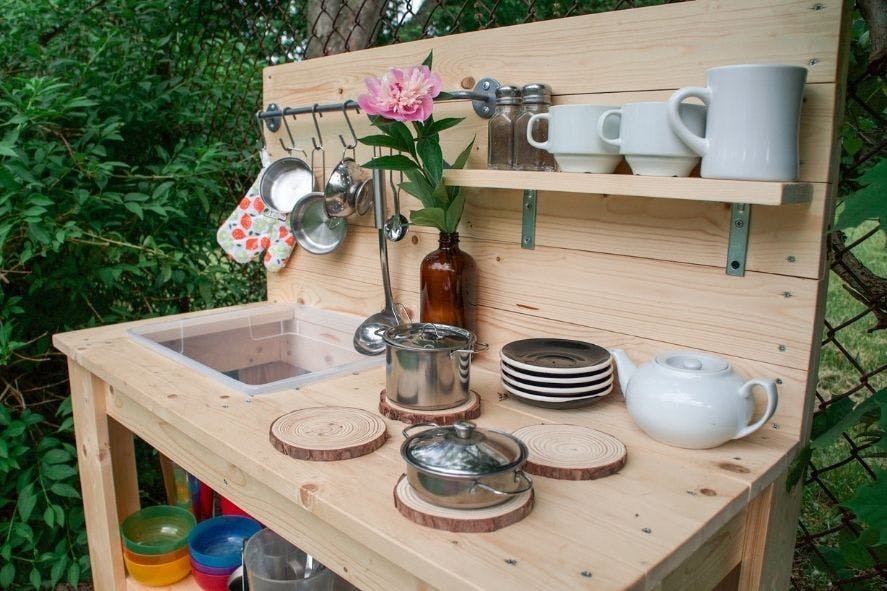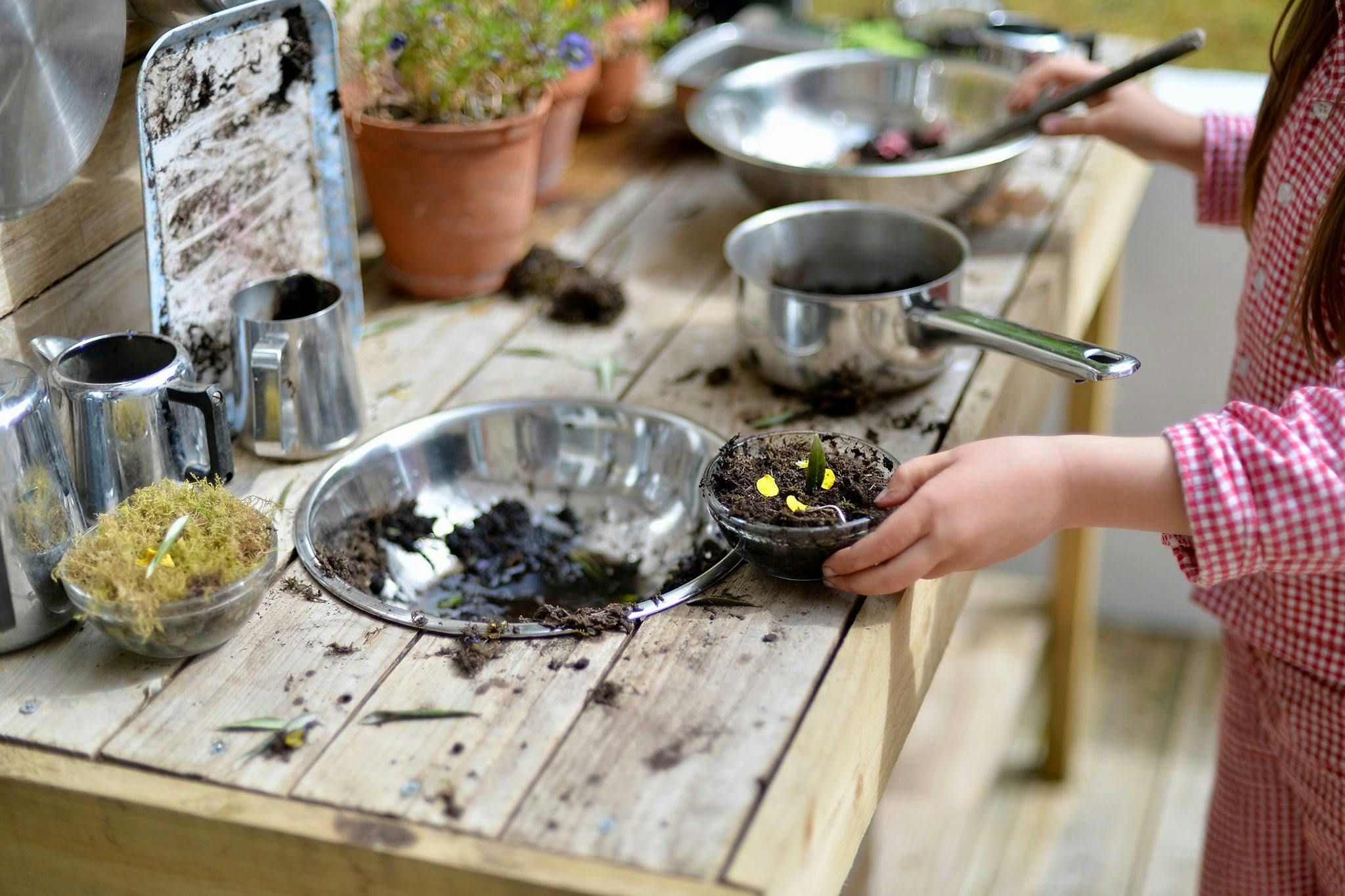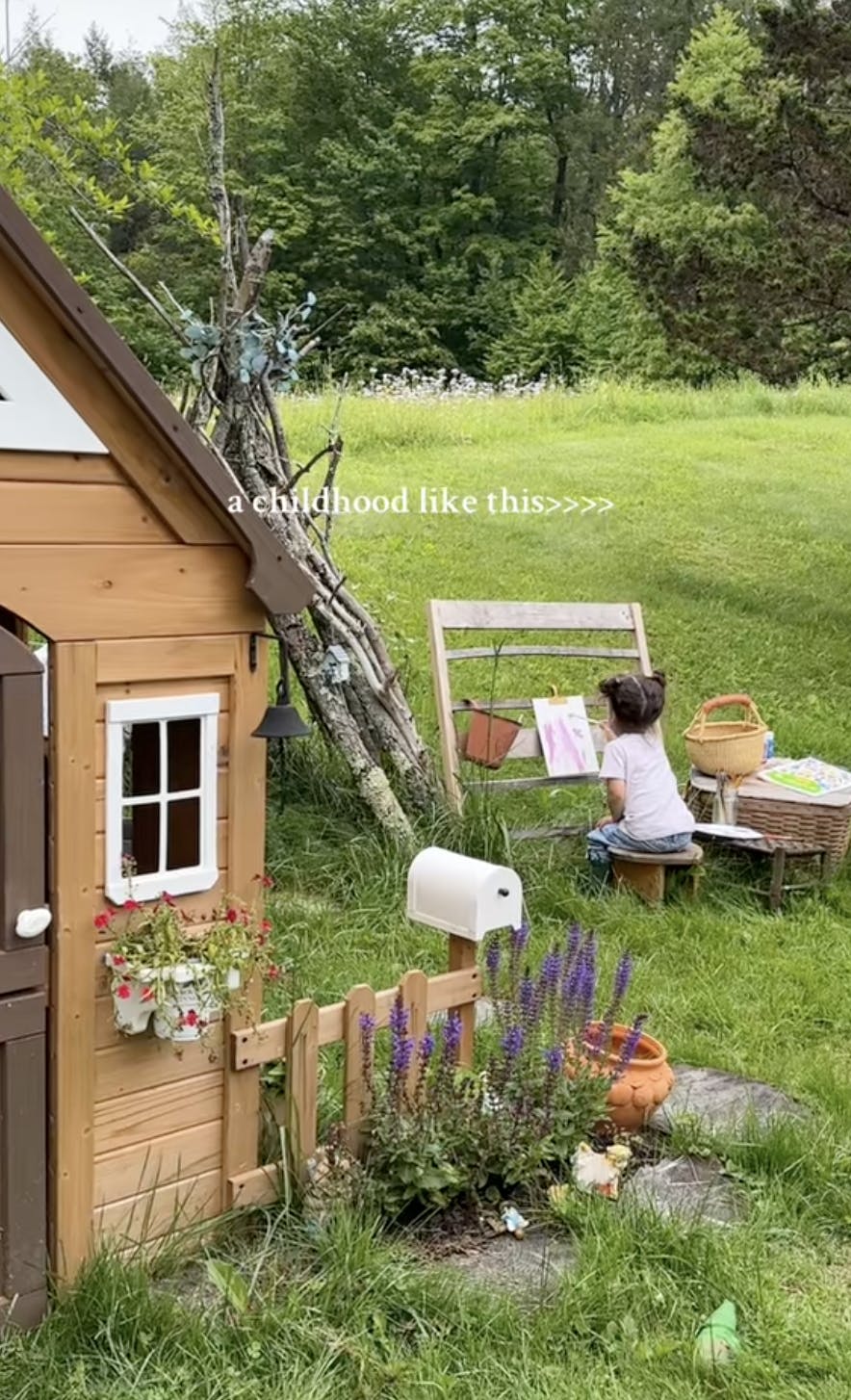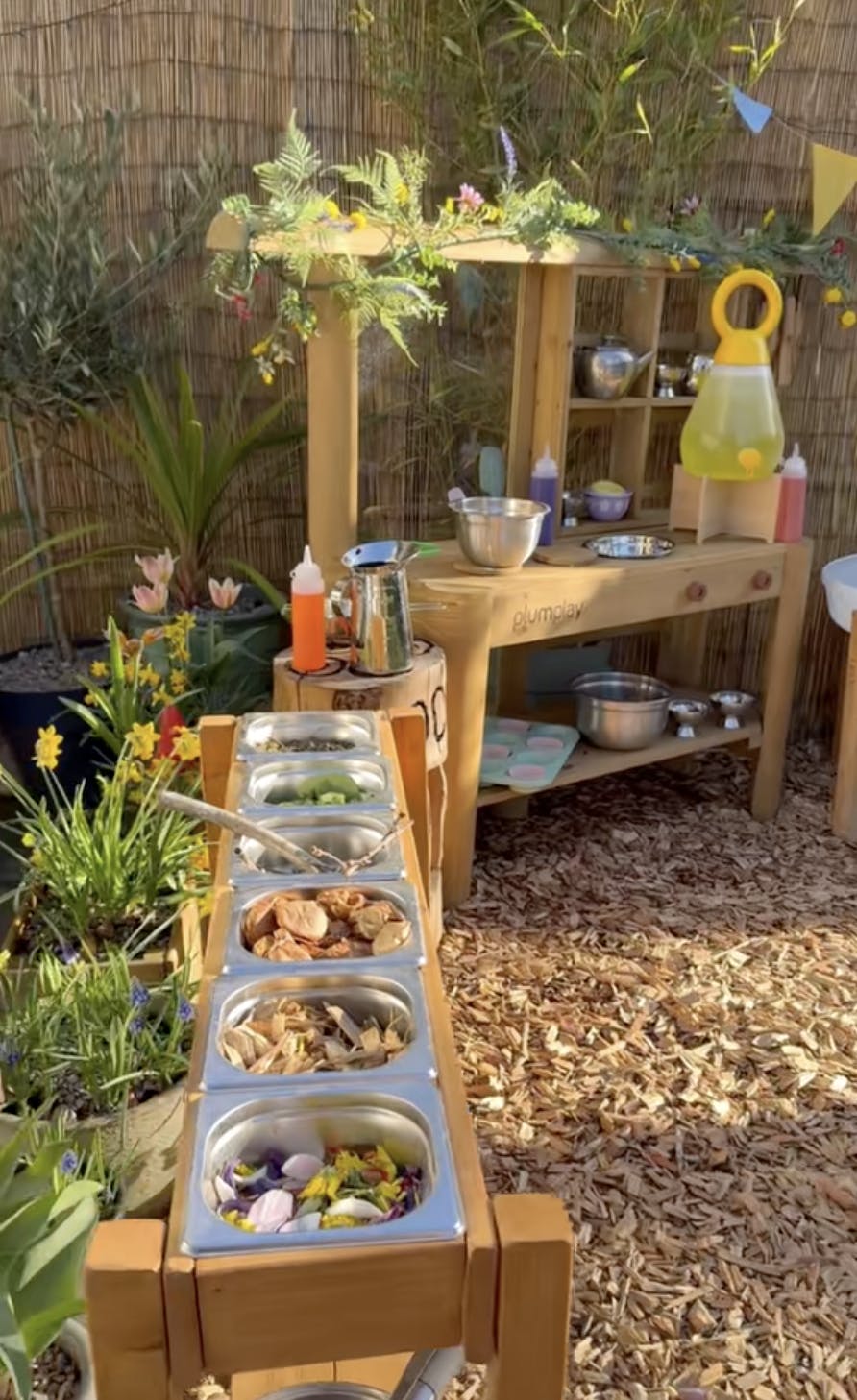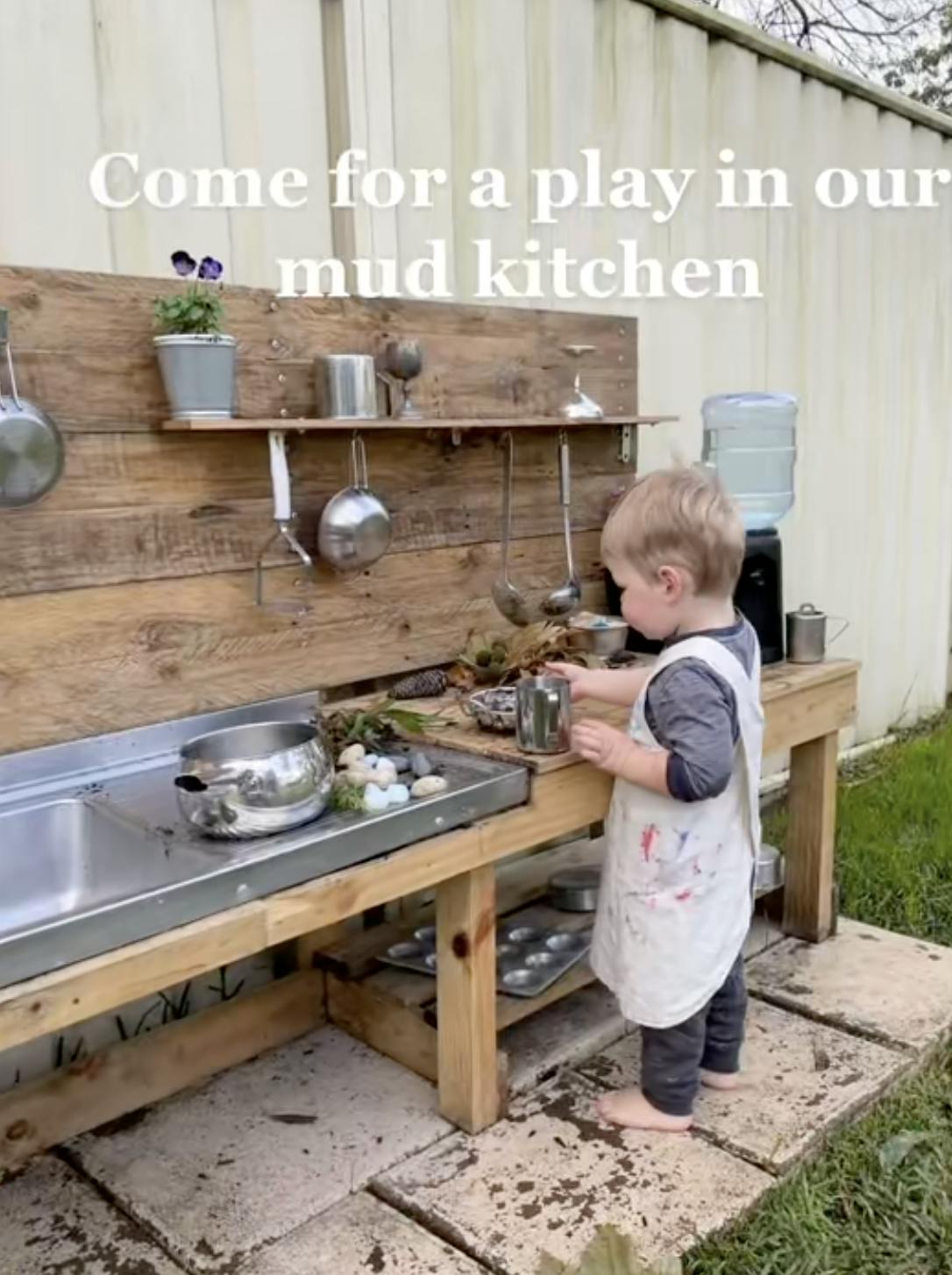
August 13, 2025
Why Mud Kitchens Are the Messy New Trend Parents Are Loving
There’s something magical happening in backyards across the country. Parents are posting videos of their children stirring flower petals into pots, mixing mud pies with old spoons, and proudly presenting pretend meals at makeshift wooden counters. The mud kitchen trend is taking off, and it’s more than just adorable. It’s a beautiful example of child-led learning, imaginative play, and hands-on exploration, the core values of the Reggio Emilia approach that we live by at Little Sunshine’s Playhouse.
What Is a Mud Kitchen?
A mud kitchen is a dedicated outdoor play area where children can experiment with natural materials like mud, sand, water, leaves, sticks, and stones. Set up with pots, pans, old utensils, and a “cooking” surface—often made from upcycled wood or crates—a mud kitchen invites endless pretend play, sensory exploration, and collaboration.
Whether your child is “baking” mud muffins or mixing a potion of petals and puddle water, a mud kitchen offers the perfect space to get messy, get creative, and get connected with nature.
(Image thanks to Our Days Outside)
Why Mud Kitchens Align So Well with Reggio Emilia Principles
The Reggio Emilia philosophy sees the environment as the “third teacher,” right alongside educators and parents. A thoughtfully designed mud kitchen is an extension of that principle, an outdoor learning space where the child is in charge of the experience.
Here’s how a mud kitchen brings Reggio Emilia values to life:
- Child-Led Play: Children create their own goals, roles, and recipes during mud kitchen time. This kind of open-ended play fosters independence and confidence.
- Sensory Exploration: Mixing, squishing, pouring, and scooping all stimulate the senses and support cognitive development.
- Natural Materials: Reggio Emilia classrooms often favor natural, found materials over commercial toys. Mud kitchens are rich with textures, smells, and real-world ingredients from nature.
- Collaboration & Communication: Whether children are negotiating roles in their “restaurant” or building recipes together, they’re learning to communicate and work as a team.
(Image thanks to gardenersworld.com)
Creative Mud Kitchen Ideas to Spark Imagination
No two mud kitchens are alike—yours can be as simple or elaborate as you like. Here are a few ideas to get your family started:
- Pallet Kitchen Station: Repurpose old pallets or wood to create counters and shelves.
- Rainwater Collection: Add a bucket under a downspout for easy (and sustainable!) water access.
- Herb & Flower Bar: Let children pick safe flowers and herbs from the garden to use in their “cooking.”
- Chalkboard Menus: Hang a small chalkboard so little chefs can write out their daily specials.
- Potions Corner: Provide jars, droppers, and natural coloring (like beet juice or turmeric water) to make magical mixtures.
- Recycled Tools: Use old muffin tins, baking trays, whisks, and scoops to promote real-world fine motor skills.
Want even more ideas? Just search #mudkitchen on TikTok or Instagram and you’ll find thousands of creative parents sharing how they brought their outdoor activities for kids to life.
See Mud Kitchens in Action
Check out these incredible TikToks of families showing off their creative mud kitchen setups:
Have a mud kitchen at home? We’d love to see it! Tag us on social media or share your setup with your child’s teacher. We’re always excited to see how our families are bringing outdoor activities for kids into their everyday lives.
Let’s Keep the Learning Going Outside
At Little Sunshine’s Playhouse, we believe that learning shouldn’t be confined to four walls. Mud kitchens are a beautiful reminder that some of the best lessons come from the natural world, especially when children are given the freedom to explore it on their own terms.
Whether you build a full backyard setup or offer a few simple bins and tools, a mud kitchen is one of the most enriching outdoor activities for kids you can provide. And as your child scoops, stirs, and plays, know that they’re doing more than making a mess. They’re making discoveries.
Keep reading here!
